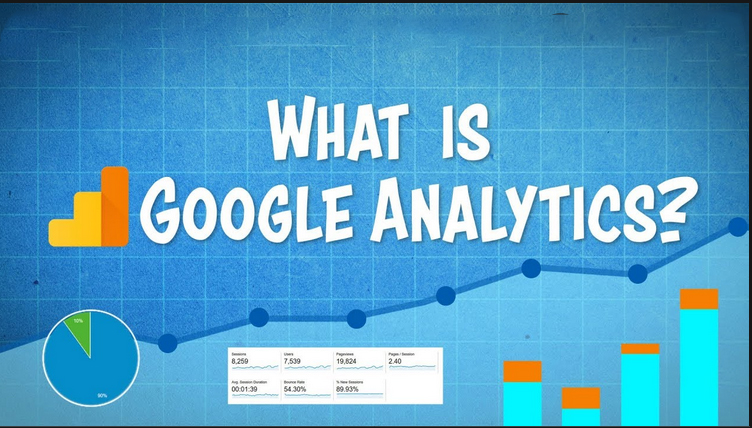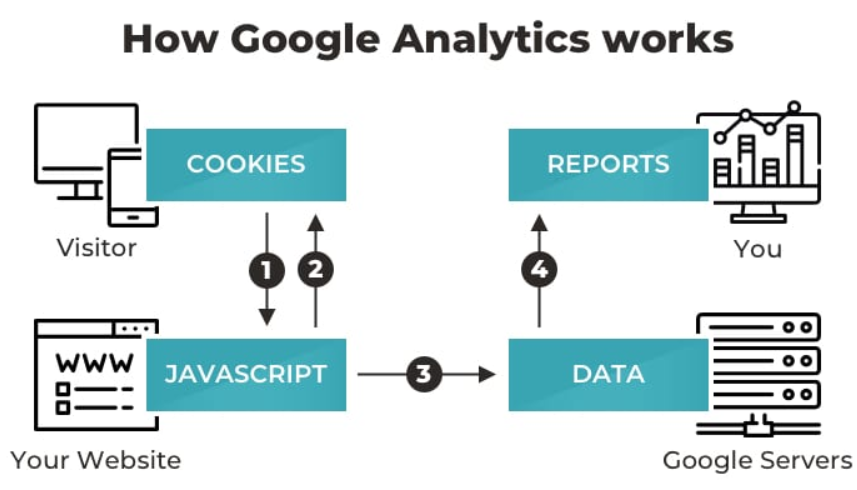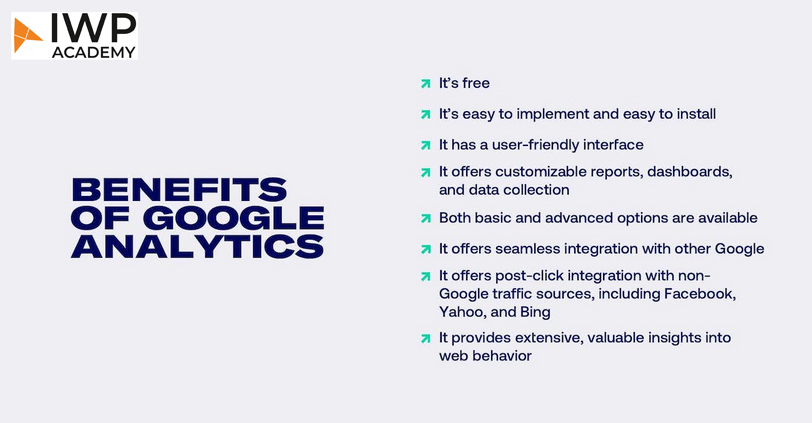The digitization of the whole world has evolved how business takes place. Almost everything happens online, from banking to buying and selling goods and services. It has become necessary for businesses to shift to online platforms to survive.
Due to this innovation and the emergence of the new media, many tools and websites have been created to help companies with digital marketing. Almost every social media site, blog site, micro-blog sites and website have an inbuilt analytics tool which collects data such as website visits, likes, comments, clicks and much more and helps users to analyse it.
One of such tools, Google Analytics, has become necessary for all companies. Before understanding its importance, we must know what it exactly is.
What is Google Analytics?

Google Analytics is a website analytic tool offered by Google to help you analyse your site’s traffic. The service was launched in 2005 after Google acquired Urchin Software Corp.
When one thinks of ‘website analytics, it may not sound like a lot of work, but it is, especially if you have a website that does the work of digital marketing. Since everything happens online now, all the campaigns, advertisements, promotional content, and endorsements are tracked, analysed and reported to you easily and efficiently. This data can help you tweak your next campaign or the service you provide accordingly.
Google Analytics also tracks activities such as session duration (measurement of the time taken by a user to complete an action on the website), pager per session (pages viewed per session), bounce rate (number of visitors who enter and leave the site immediately).
It has dashboard-type data for casual users, providing the basic information needed, such as views, sessions and sales. More in-depth data provides a detailed insights report for more serious and heavy businesses.
Google Analytics is the messiah for all online businesses and marketing, delivering all the vital information needed to run successfully.
How to Use Google Analytics?

A few basic steps are required to use Google Analytics:
- Create or sign in to your Google account
- Set up a property, which is the details about your website, in your Analytics account
- Set up report viewing in your property, which lets you filter the information you need
- Click the “Get Tracking ID” and agree to the terms and conditions button after reading them
- Add the code on your website for which you need the data
- The next step is to configure your account, properties, views and goals setting (goals tell Google Analytics when something important has happened on your website)
Importance of Google Analytics in Digital Marketing

The whole point of Google Analytics is important and beneficial for your website. But other than there are a few more important, which are:
- Overview of All Channels
It collects and shows data from all channels that visit your website, such as Organic Search (SEO), Direct Traffic, Social Media, Referrals, Emails, Paid Search and more.
- Conversion Tracking
The Goal setting helps you get insights into how many people are visiting your site, where they came from and if they are converting or not, which means if they are completing the desired task. For example, if a person buys the product you are selling by clicking on an ad they see, the task is complete.
- Customer Engagement
This gives an insight into what actions are taking place on your website. Google Analytics allows you to review the bounce rate, average session duration, and the average number of pages each visitor viewed.
- Audience Demographic
Data about your audience is important so that you can make your campaigns, ads, content etc., according to that. It lets you know the age, gender, interests, devices and location.
- Reasons for Bounce Rate
One of the most important metrics, Bounce Rate, refers to the percentage of people leaving your website after visiting only one page. It is important to reduce this rate. You can get data on the number of bounce rates as well as the reason behind it.
- Tells Which Social Media Platforms to Target
Social media is an important channel for mass communication. It is a great way to drive huge potential customers to your website. Google Analytics provides the data on which social media platform drives more customers and which is the best for your business.
- Easy Integration with Other Tools
Integration with other tools and platforms is easily possible with Google Analytics. It provides a clear and easy-to-use interface for devices like mobile phones or tabs. It also works perfectly with other marketing tools such as Google Ads.
All of these reasons can do wonders when it comes to digital marketing. The automatic data collection saves time and offers a thorough report about your website, which can help you make changes and improve it accordingly.
It is an ally for your business. Even though there are many other such tools, Google Analytics is the most reliable one with a relevant solution for managing your website. Also, it’s free, so you can put your money where required. Without Google Analytics, a digital marketing course is incomplete. It is important to learn how to use it to have a profitable business or to ensure your campaign or ad runs successfully.
Digital Branding comes from Digital Marketing. It focuses only on creating awareness about your product, service or good. While Digital Marketing provides you with a holistic view of your company.
It refers to the percentage of your website’s exits, which means through which page the visitors exited from.
The personal information of a visitor that it collects, such as their gender, age and location, is used to customise the website. Other than that, it doesn’t collect any more information.

